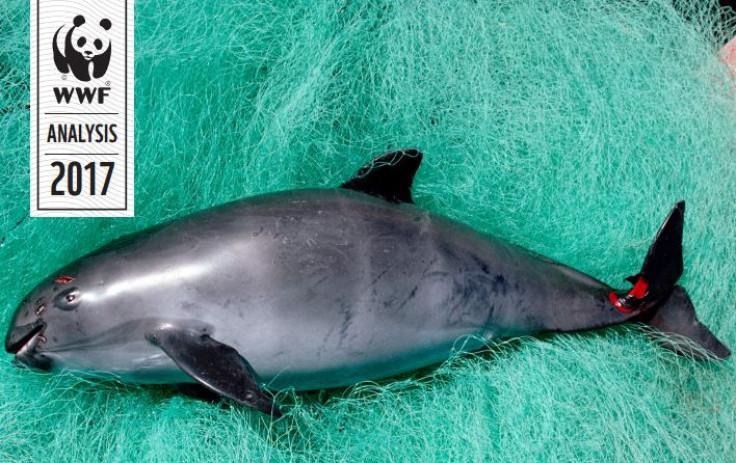WWF, Leonardo DiCaprio Try To Save Dolphin-Like Vaquita From Extinction

The World Wildlife Fund has set off a call to action to save the endangered vaquita from an extinction that appears imminent, with a new report projecting that the few still alive of the world’s rarest marine mammal might be gone by next year.
There are less than 30 of the porpoises left in the upper Gulf of California, the WWF warned, referring to the strip of water between the Baja California peninsula and the rest of Mexico that eventually connects with the Pacific Ocean. Vaquitas only live in the northern portion of that inlet, which is a World Heritage site for its biodiversity, but certain fishing practices, not all of which are legal, have put the species at risk.
“Failure to act will result in the imminent extinction of the vaquita,” the WWF said.
Read: Penguin Extinction Is Not Just About Climate Change
Use of the gillnet in fishing is one of the practices at which the organization pointed the finger, calling it “the number one cause of the vaquita’s decline.”
The gillnet is a fishing net that hangs vertically in the water, trapping fish by their gills. It is often used to catch fish like salmon, seabass, swordfish and tuna in the United States, according to the National Oceanic and Atmospheric Administration, but poses a risk to sea turtles and marine mammals like dolphins, whales and sea lions.
In the case of the Upper Gulf of California, the gillnets are ensnaring vaquitas and contributing to their decline. Their population is half of what it was last year, and 90 percent smaller than it was just six years ago.
Mexico has a two-year ban on gillnets that is set to expire at the end of this month. The WWF has started a petition to ask Mexican President Enrique Peña Nieto to permanently ban gillnets and promote alternatives to fishing with those nets to stop them from being used illegally, among other measures.
The plight of the vaquita has caught attention from many in the U.S., including actor Leonardo DiCaprio, known for his environmental efforts. He wrote in one tweet, “With fewer than 30 vaquita left, the time to act is now. #SavetheVaquita”
The vaquita is the most endangered marine mammal in the world. Join me + @World_Wildlife and take action. https://t.co/sB80PCeTG9 pic.twitter.com/UQMomVkvlC
— Leonardo DiCaprio (@LeoDiCaprio) May 11, 2017
With fewer than 30 vaquita left, the time to act is now. #SavetheVaquita https://t.co/iQD8q4ottZ
— Leonardo DiCaprio (@LeoDiCaprio) May 12, 2017
Vaquitas and porpoises in general look similar to dolphins, although they are separate creatures. The gray marine mammal vaquita is sometimes known as the panda of the sea because of the dark rings around its eyes. It also has dark marks on its lips that lead to the pectoral fins and make it look like it is smiling. Growing to 5 feet and weighing just 120 pounds, the vaquita is the smallest porpoise in the world.
Read: Loud Ships Are Making Seals Go Deaf
Part of the reason vaquitas are in such trouble is the prized — and also endangered — totoaba, a fish that shares the northern waters of the Gulf of California and is sought after for its swim bladders, desired in traditional Chinese medicine. As people are catching the totoaba to smuggle, the porpoises get trapped in the gillnets and die.
“This little porpoise wasn't discovered until 1958 and a little over half a century later, we are on the brink of losing them forever,” the WWF said.
© Copyright IBTimes 2024. All rights reserved.











